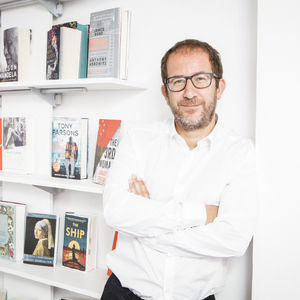Secret agents
Literary agents are central to authors’ success — so why are we still considered a fringe benefit?
Recently I filmed an online course on "How to Get a Literary Agent" for our in-house creative writing school, Curtis Brown Creative. It was an enjoyable pause in my frenetic activities as a literary agent and c.e.o. of Curtis Brown Group to stop and reflect on the changing role of the literary agent during my 30 years at CB. Unsurprisingly, I concluded we agents are an essential part of the publishing process. Yet, why are literary agents considered so outside the system?
I say this because the first question I always ask to every new intern and assistant at CBG who has come off a MA in Publishing course is: “what did you learn about the role of the literary agent?”
The answer is always the same: “Oh, there was no mention of agents in the course but sometimes we get a session from a visiting agent."
Why? We all know that good literary agents discover the authors, nurture them, prepare their work through intensive editing and platform building and managing their expectations when they go to market. Perhaps the old perception of the word “agent” persists? The old school version of a literary agent who was a former publisher who uses his/her network to sell to their friends at an agreeable price and usually at lunch. That era actually died in 1995 when the Net Book Agreement disappeared but the public perception – if any – of an agent is still one of a middle person, a broker, a networker.
The public perception – if any – of an agent is still one of a middle person, a broker, a networker
The fact is that the brokering of the deal, when we sell the book to a publisher after an auction, is the easiest part of the job. What measures a good agent is how they work with the publisher to get the best results for their author. How can we push our author up the priority list of a busy publishing list? How can we remind the publisher about the investment they made after the auction; how can we help keep the ship together after a storm? I see publishing a new book as a meteor hurtling to earth. When pieces start flying off as we get closer to publication (the bookseller didn’t like the cover, there aren’t enough quotes on the back, the marketing spend is now purely digital etc), we have to keep it together and keep the faith among a large team.
Fundamentally, our job is to be the author in the room when they are not in the room. Our job is to make sure the books we believed in, edited, prepared and invested in (our time is our investment) is repaid by a diligent publisher, an ambitious marketing spend, a cover that is not like everything else, a publicity campaign that feels fresh and sales in the bookshops that match and exceed expectations.
Publishing is a creative and commercial community but to ignore the role of the literary agent or treat it as a necessary evil is a disservice to the most important person in the chain – the author.
Find out more about Jonny Geller’s Curtis Brown Creative course ‘The Literary Agent – with Jonny Geller’ here.



















